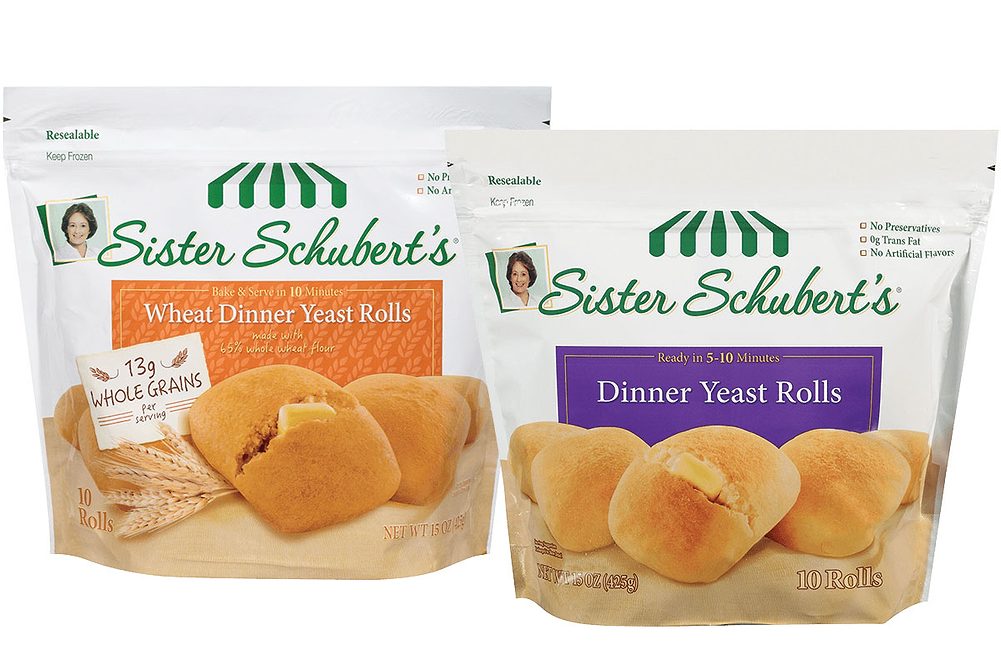WESTERVILLE, OHIO — While most of the company’s growth in the first quarter was driven by pricing actions, executives of Lancaster Colony Corp. indicated changes in its product mix also bolstered performance.
Both of Lancaster’s business segments — Retail and Foodservice — have tightened up management of their inventory, said Thomas Pigott, chief financial officer, during a Nov. 3 conference call with analysts to discuss first-quarter results.
“Both segments have eliminated lower profit business and SKUs (stock-keeping units),” Mr. Pigott said. “Inventory days on hand are down versus the prior-year quarter, and our mix of inventory is better aligned with demand trends. These items, along with a more stable and predictable operating environment helped to improve gross profit and our cash flow performance.”
Within the Retail segment, IRI data for the quarter showed share gains for Sister Schubert’s dinner rolls, said David Ciesinski, president and chief executive officer.
“Sister Schubert’s share of the frozen dinner roll category increased 290 basis points to 53.9%,” he said.
In fiscal 2022, 36% of Lancaster’s Retail sales mix was frozen bread products.
In the first quarter ended Sept. 30, Lancaster net income totaled $37.5 million, equal to $1.36 per share on the common stock, up 23% from $30.7 million, or $1.11 per share, in the same period a year ago. Net sales were $425 million, up 8.4% from $392 million a year ago.
“While our commodity inflation was approximately 25% this quarter, our pricing actions offset this increase in the majority of the prior-year shortfall resulting in the improved performance,” Mr. Pigott said.
Operating income for the Retail business in the first quarter was $42.9 million, a decrease of 11% from $48.2 million in the year-ago quarter. Net sales in the Retail unit were essentially flat at $223 million. Sales compared to an increase of 15.6% in the prior-year quarter and also reflected the impact of advance ordering during the fourth quarter of 2022.
Consolidated net sales were unfavorably impacted by an estimated $25 million attributable to advance ordering during the fourth quarter ahead of the company’s July 1 ERP go-live, Lancaster said. Of this amount, approximately $11 million were advance Retail sales and the remaining $14 million were advance Foodservice sales.
In addition to gains made by the Sister Schubert’s brand, Lancaster said IRI data showed share gains for Marzetti refrigerated dressings in the first quarter. Marzetti brand dressings added 190 basis points in the refrigerated dressings category to 23.8%. Top-performing product lines in the first quarter also included Marzetti refrigerated caramel dips.
“Sales volumes measured in pounds shipped were down 15% as impacted by three primary factors: first, our decision to exit some less profitable product lines during fiscal year 2022; second, the advanced ordering ahead of our ERP go-live; and third, demand elasticity attributed to inflationary pricing,” Mr. Ciesinski said.
Operating income for the Foodservice segment totaled $31.9 million in the quarter, compared with $15.8 million in the first quarter of fiscal 2022. Quarterly net sales in the unit rose 20% to $202.3 million from $168.2 million. Sales growth in the Foodservice segment was driven by inflationary pricing and volume gains from select quick-service restaurant customers among its national chain restaurant accounts, the company said.
“As you go back in time, if you go back a few years, Foodservice was earning at a similar level to that $30 million,” said Thomas Pigott, chief financial officer. “I think if we go back to 2020, it was around $27 million of operating income.”
Innovation in the quarter included Sister Schubert’s Filled Bites, a line of frozen indulgent baked snacks. The company also introduced a new larger size of Chick-fil-A sauce and launched Arby’s Sauce and Arby’s Horsey Sauce.





